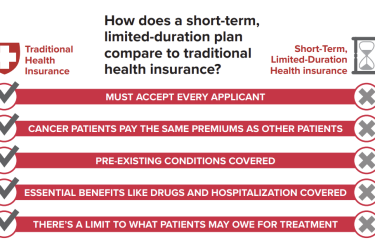
Think the only big lawsuit pending on the Affordable Care Act is the Texas fight over whether the whole law is unconstitutional? Think again.
Several lawsuits are still working their way through the courts involving the unpaid cost-sharing reduction (CSR) subsidies, and risk corridor payments. Potentially, the Trump administration could be forced to pay insurers billions of dollars. (Paul Demko has reported on this extensively for Politico, and this post cribs shamelessly — but gratefully — from his knowledge.)
Even if the payments finally are made, it will be too late to resuscitate the ACA co-ops that failed (and most of them failed for multiple reasons — not just these payments) or undo the damage to the ACA caused by rising premiums and fleeing insurers in 2017-18.
One set of cases is about the CSRs. Four recent rulings by two judges on cases brought by several dozen insurers all sided with the health plans and found the Trump administration broke the law when it halted the CSR payments in the fall of 2017. Even though the federal government stopped making those payments to insurers, the health plans themselves still were legally obligated to reduce out-of-pocket costs for low-income Obamacare customers. The uncertainty about what President Trump would do on CSRs during much of that year was one reason insurers raised premiums sharply in 2018 and some fled the markets altogether. The aftermath has been working its way through the courts. Health plans had won two similar cases last year on these subsidies. (Some of these cases still are on appeal and others are likely to be appealed.) There are several estimates of what the federal back payments could ultimately total if the insurers win. In a court filing on March 5, insurers in a class action suit said they were owed $2.3 billion in CSR payments — and that’s just from late 2017 through 2018.
Congress has a couple of ways it could solve this — appropriate the money for the CSRs, for instance, or repeal the provision. But there’s not much action on that front, and most states figured out how to minimize the impact via silver-loading.
Other lawsuits focus on the risk corridor payments — or lack thereof. The health plans were supposed to have gotten paid for covering older, sicker, more expensive customers than anticipated. But the GOP in Congress modified that obligation — basically setting up a way that they’d be paid less to keep the program “budget neutral (i.e., not adding to the deficit.). The health plans would get only 12 cents on the dollar.
Lower courts split on the issue, but an appeals court sided with the Trump administration against Moda Health Plan and Land of Lincoln Health. The court said Congress had the right to change the payment rules, even if the insurers had made decisions assuming they’d get the full amount.
For more detail on these cases, and others involving insurers and the health care law, see posts by Health Affairs Blog’s Katie Keith here and here.








